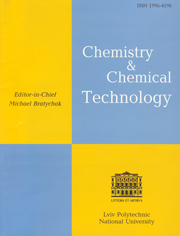Bio-Electrochemical Recovery of Copper from Dilute Acidic Solutions as a Function of External Resistance, Copper and Iron Concentrations
| Attachment | Size |
|---|---|
| 1.11 MB |
Keywords:
[1] Masloboev, V.A.; Seleznev, S.G.; Svetlov, A.V.; Makarov, D.V. Hydrometallurgical Processing of Low-Grade Sulfide Ore and Mine Waste in the Arctic Regions: Perspectives and Challenges. Minerals 2018, 8, 436. https://doi.org/10.3390/min8100436
https://doi.org/10.3390/min8100436
[2] Bogdanović, G.D.; Stanković, V.D.; Trumić, M.S.; Antić, D.V.; Trumić, M.Ž. Leaching of Low-Grade Copper Ores: A Case Study for'Kraku Bugaresku-Cementacija'deposits (Eastern Serbia). J. Min. Metall. A Min. 2016, 52, 45-56.
https://doi.org/10.5937/JMMA1601045B
[3] Vakylabad, A.B.; Schaffie, M.; Naseri, A.; Ranjbar, M.; Manafi, Z. A Procedure for Processing of Pregnant Leach Solution (PLS) Produced from a Chalcopyrite-Ore Bio-Heap: CuO Nano-Powder Fabrication. Hydrometallurgy 2016, 163, 24-32. https://doi.org/10.1016/j.hydromet.2016.03.013
https://doi.org/10.1016/j.hydromet.2016.03.013
[4] Gorgievski, M.; Božić, D.; Stanković, V.; Bogdanović, G. Copper Electrowinning from Acid Mine Drainage: A Case Study from the Closed Mine "Cerovo". J. Hazard. Mater. 2009, 170, 716-721. https://doi.org/10.1016/j.jhazmat.2009.04.135
https://doi.org/10.1016/j.jhazmat.2009.04.135
[5] Moats, M.; Free, M. A Bright Future for Copper Electrowinning, JOM 2007, 59, 34-36. https://doi.org/10.1007/s11837-007-0128-y
https://doi.org/10.1007/s11837-007-0128-y
[6] Schlesinger, M.E.;King, M.J.; Sole, K.C.; Davenport, W.G. Extractive Metallurgy of Copper; Elsevier, 2011.
[7] Logan, B.E. Exoelectrogenic Bacteria that Power Microbial Fuel Cells. Nat. Rev. Microbiol. 2009, 7, 375-381. https://doi.org/10.1038/nrmicro2113
https://doi.org/10.1038/nrmicro2113
[8] Rabaey, K.; Lissens, G.; Siciliano, S.D.; Verstraete, W. A Microbial Fuel Cell Capable of Converting Glucose to Electricity at High Rate and Efficiency. Biotechnol. Lett. 2003, 25, 1531-1535. https://doi.org/10.1023/A:1025484009367
https://doi.org/10.1023/A:1025484009367
[9] Ter Heijne, A.; Liu, F.; Weijden, R.V.D.; Weijma, J.; Buisman, C.J.N.; Hamelers, H.V.M. Copper Recovery Combined with Electricity Production in a Microbial Fuel Cell. Environ. Sci. Technol. 2010, 44, 4376-4381.
https://doi.org/10.1021/es100526g
[10] Rodenas Motos, P.; Ter Heijne, A.; van der Weijden, R.; Saakes, M.; Buisman, C.J.N.; Sleutels, T.H.J.A. High Rate Copper and Energy Recovery in Microbial Fuel Cells. Front. Microbiol. 2015, 6, 527. https://doi.org/10.3389/fmicb.2015.00527
https://doi.org/10.3389/fmicb.2015.00527
[11] Trokhymenko, G.; Gomelya, M. Development of Low Waste Technology of Water Purification from Copper Ions. Chem. Chem. Technol. 2017, 11, 372-377. https://doi.org/10.23939/chcht11.03.372
https://doi.org/10.23939/chcht11.03.372
[12] Choi, Y. Cui, Recovery of Silver from Wastewater Coupled with Power Generation Using a Microbial Fuel Cell. Bioresour. Technol. 2012, 107, 522-525. https://doi.org/10.1016/j.biortech.2011.12.058
https://doi.org/10.1016/j.biortech.2011.12.058
[13] Modin, O.; Wang, X.; Wu, X.; Rauch, S.; Fedje, K.K. Bioelectrochemical Recovery of Cu, Pb, Cd, and Zn from Dilute Solutions. J. Hazard. Mater. 2012, 235, 291-297.
https://doi.org/10.1016/j.jhazmat.2012.07.058
[14] Zhang, B.; Feng, C.; Ni, J.; Zhang, J.; Huang, W. Simultaneous Reduction of Vanadium (V) and Chromium (VI) with Enhanced Energy Recovery Based on Microbial Fuel Cell Technology. J. Power Sources 2012, 204, 34-39. https://doi.org/10.1016/j.jpowsour.2012.01.013
https://doi.org/10.1016/j.jpowsour.2012.01.013
[15] Zhang, L.-J.; Tao, H.-C.; Wei, X.-Y.; Lei, T.; Li, J.-B.; Wang, A.-J.; Wu, W.-M. Bioelectrochemical Recovery of Ammonia--Copper (II) Complexes from Wastewater Using a Dual Chamber Microbial Fuel Cell. Chemosphere 2012, 89, 1177-1182. https://doi.org/10.1016/j.chemosphere.2012.08.011
https://doi.org/10.1016/j.chemosphere.2012.08.011
[16] Fedje, K.K.; Modin, O.; Strömvall, A.-M. Copper Recovery from Polluted Soils Using Acidic Washing and Bioelectrochemical Systems. Metals (Basel) 2015, 5, 1328-1348. https://doi.org/10.3390/met5031328
https://doi.org/10.3390/met5031328
[17] Kaur, A.; Boghani, H.C.; Milner, E.M.; Kimber, R.L.; Michie, I.A.; Daalmans, R.; Dinsdale, R.M.; Guwy, A.I.; Head, I.M.; Lloyd, J.R. et al. Bioelectrochemical Treatment and Recovery of Copper from Distillery Waste Effluents Using Power and Voltage Control Strategies. J. Hazard. Mater. 2019, 371, 18-26. https://doi.org/10.1016/j.jhazmat.2019.02.100
https://doi.org/10.1016/j.jhazmat.2019.02.100
[18] Liu, H.; Logan, B.E. Electricity Generation Using an Air-Cathode Single Chamber Microbial Fuel Cell in the Presence and Absence of a Proton Exchange Membrane. Environ. Sci. Technol. 2004, 38, 4040-4046. https://doi.org/10.1021/es0499344
https://doi.org/10.1021/es0499344
[19] Ramasamy, R.P.; Ren, Z.; Mench, M.M.; Regan, J.M. Impact of Initial Biofilm Growth on the Anode Impedance of Microbial Fuel Cells. Biotechnol. Bioeng. 2008, 101, 101-108. https://doi.org/10.1002/bit.21878
https://doi.org/10.1002/bit.21878
[20] Liu, H.; Cheng, S.; Logan, B.E. Power Generation in Fed-Batch Microbial Fuel Cells as a Function of Ionic Strength, Temperature, and Reactor Configuration. Environ. Sci. Technol. 2005, 39, 5488-5493. https://doi.org/10.1021/es050316c
https://doi.org/10.1021/es050316c
[21] Lyon, D.Y.; Buret, F.; Vogel, T.M.; Monier, J.-M. Is resistance Futile? Changing External Resistance does not Improve Microbial Fuel Cell Performance. Bioelectrochemistry 2010, 78, 2-7. https://doi.org/10.1016/j.bioelechem.2009.09.001
https://doi.org/10.1016/j.bioelechem.2009.09.001
[22] Zhang, L.; Zhu, X.; Li, J.; Liao, Q.; Ye, D. Biofilm Formation and Electricity Generation of a Microbial Fuel Cell Started up under Different External Resistances. J. Power Sources 2011, 196, 6029-6035. https://doi.org/10.1016/j.jpowsour.2011.04.013
https://doi.org/10.1016/j.jpowsour.2011.04.013
[23] Koók, L.; Nemestóthy, N.; Bélafi-Bakó, K.; Bakonyi, P. Investigating the Specific Role of External Load on the Performance Versus Stability Trade-Off in Microbial Fuel Cells. Bioresour. Technol. 2020, 309, 123313. https://doi.org/10.1016/j.biortech.2020.123313
https://doi.org/10.1016/j.biortech.2020.123313
[24] Kamau, J.M.; Mbui, D.N.; Mwaniki, J.M.; Mwaura, F.B.; Kamau, G.N. Microbial Fuel Cells: Influence of External Resistors on Power, Current and Power Density. J. Thermodyn. Catal. 2017, 8, 100-182. http://dx.doi.org/10.4172/2157-7544.1000182
https://doi.org/10.4172/2157-7544.1000182
[25] Torres, C.I.; Kato Marcus, A.; Rittmann, B.E. Proton Transport Inside the Biofilm Limits Electrical Current Generation by Anode-Respiring Bacteria. Biotechnol. Bioeng. 2008, 100, 872-881. https://doi.org/10.1002/bit.21821
https://doi.org/10.1002/bit.21821
[26] Tao, H.-C.; Liang, M.; Li, W.; Zhang, L.-J.; Ni, J.-R.; Wu, W.M. Removal of Copper from Aqueous Solution by Electrodeposition in Cathode Chamber of Microbial Fuel Cell. J. Hazard. Mater. 2011, 189, 186-192. https://doi.org/10.1016/j.jhazmat.2011.02.018
https://doi.org/10.1016/j.jhazmat.2011.02.018
[27] Zhang, H.-M.; Xu, W.; Li, G.; Liu, Z.-M.; Wu, Z.-C.; Li, B.-G. Assembly of Coupled Redox Fuel Cells Using Copper as Electron Acceptors to Generate Power and its in-situ Retrieval. Sci. Rep. 2016, 6, 21059. https://doi.org/10.1038/srep21059
https://doi.org/10.1038/srep21059
[28] Sumisha, A.; Ashar, J.; Asok, A.; Karthick, S.; Haribabu, K. Reduction of Copper and Generation of Energy in Double Chamber Microbial Fuel Cell Using Shewanella putrefaciens. Sep. Sci. Technol. 2020, 55, 265. https://doi.org/10.1080/01496395.2019.1625919
https://doi.org/10.1080/01496395.2019.1625919










